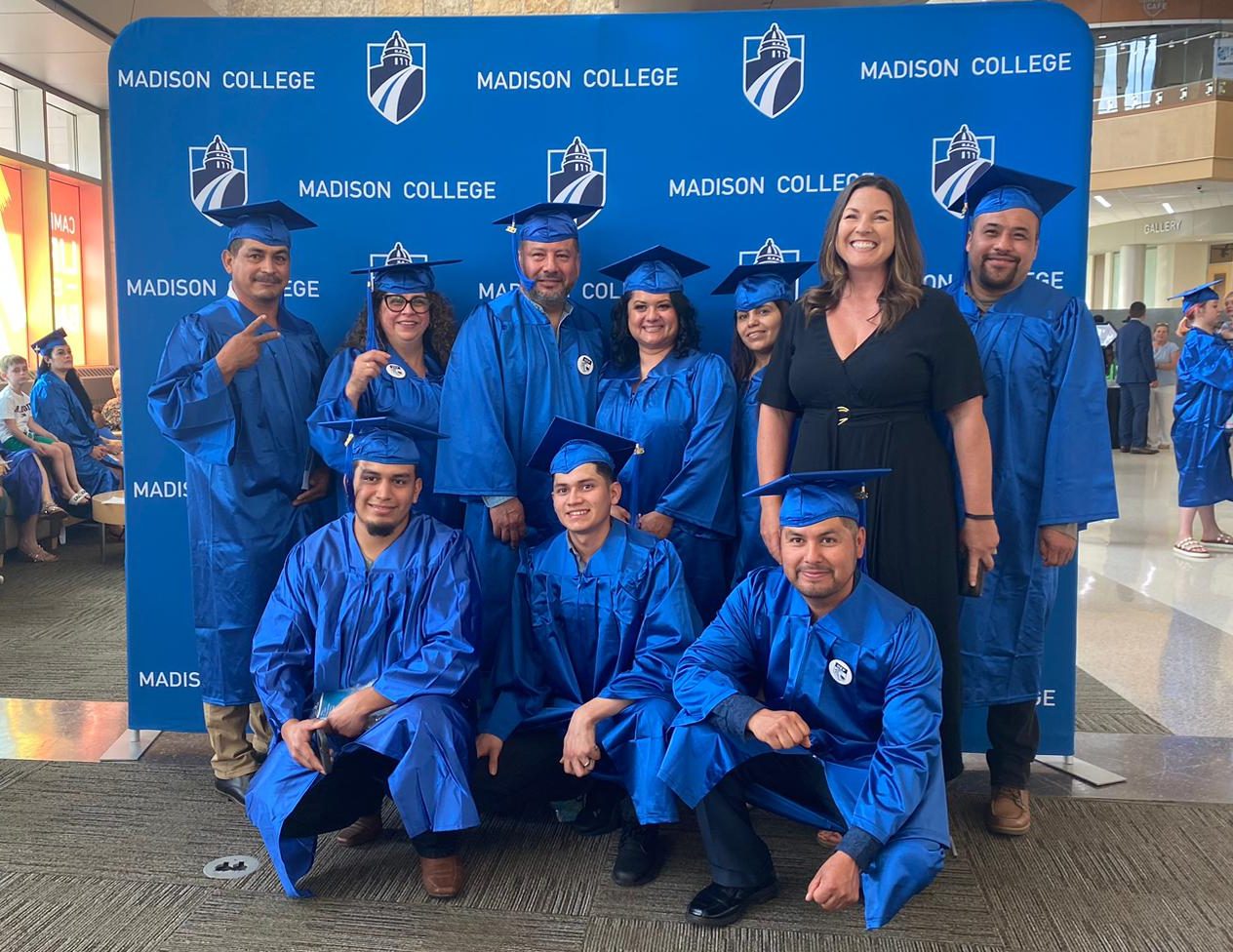
Related Stories
Digital Equity Champions for All Learners: Madison College High School Equivalency Program Builds Digital Skills among Migrant and Seasonal Farm Workers
In Wisconsin, Madison College’s High School Equivalency Program (HEP) supports migrant and seasonal farm workers and their families earning their Certificate of General Educational Development (GED) or High School Equivalency Diploma (HSED). Learners in this program are mostly mobile, and they come from across the entire state, often rural and remote areas. Therefore, even prior to COVID-19, program director Alex Fernández needed ways to enable learner access to the program from remote locations. Then, the onset of the pandemic accelerated the need for digital access and skills.
To meet learners’ device access needs, Madison College created the Technology Access Program to loan laptops and hotspots to registered students, including HEP participants, free of charge. The HEP program also informed learners about federal programs such as the Affordable Connectivity Program. Learners were encouraged to use their cell phones to access content in areas with unreliable internet service, and instructors provided technical support and flexibility with submitting assignments.
When the GED exam transitioned online, students needed to learn both exam content and digital skills to navigate the exam platform. Elizabeth Fontán, an HEP instructor at Madison College, found that learners’ hesitancy to use technology and lack of support in home languages served as significant barriers to acquiring digital literacy skills. “My students were overwhelmed by computers,” Fontán explained. She began meeting her learners’ needs by leveraging materials translated into Spanish. Fontán also integrated digital skill-building opportunities into instructional content and sought to destigmatize learners’ lack of knowledge on how to use technology. “We take for granted the skills of opening a document, attaching files,” said Fontán. “These need to be built in[to the curriculum].”
The program has observed the impact of device access, skill-building opportunities, technical support, and attention to factors that contribute to learner success like childcare and course/assignment flexibility. For example, prior to the pandemic, Madison College HEP began offering online opportunities for learners to build digital skills and work towards their HSED on the weekends to accommodate learners whose schedules had limited flexibility during the weekday. Currently, recognizing that some learners live in migratory camps and share limited physical space with their families, the program is working to implement stipends for childcare, so learners can better participate in remote learning.
With these supports, learners have been better able to persist in the program and often continue their educational journey past their HSED/GED, taking other classes offered at the college. Fontán shared the story of Ignacia, who had participated in the program for many years but hadn’t passed the GED tests. Although she was initially intimidated by the transition online, she used remote learning opportunities to her advantage, especially given her busy schedule as a certified nursing assistant. Leveraging the flexibility of online classes and competency-based – rather than exam-based – coursework, Ignacia recently graduated from Madison College HEP and plans to enroll in a nursing program soon.
Learners are additionally provided with a personal device upon completion of the program, which enables them to continue leveraging technology to meet their and their families’ needs, such as assisting their children with schoolwork. Fernández says the program helps them “see they can do things they didn’t think they were capable of.”
When asked for advice for states developing digital equity plans, Fernández stressed the importance of sharing program successes with leaders at the local and state level. “These programs might not be on their radar until it is highlighted. We need to advocate for these things because it takes money. We need to convince people to allocate funds for this.” For educators and educational leaders, Fontán encouraged the explicit inclusion of digital skill-building opportunities when developing curricula with digital elements.


